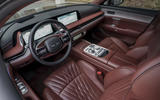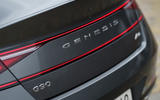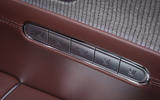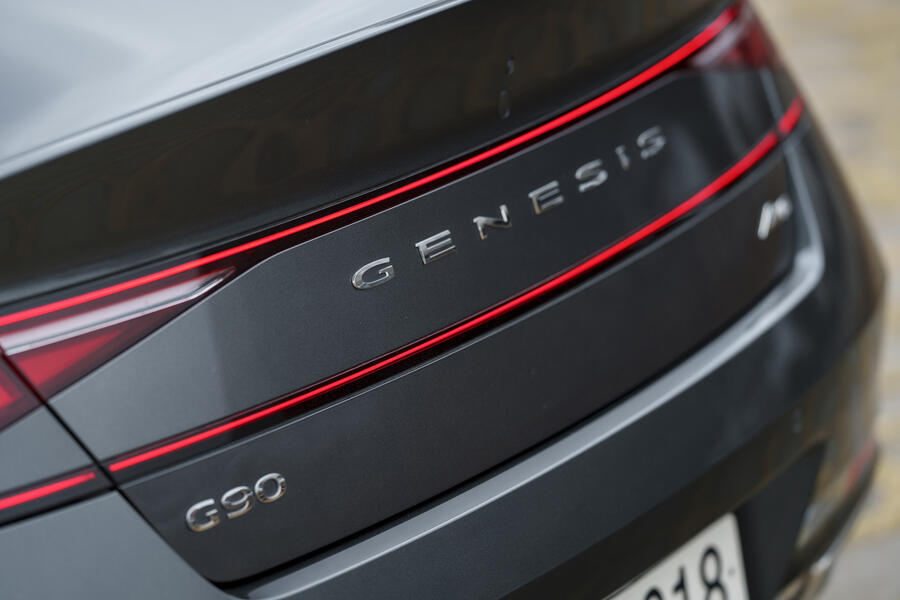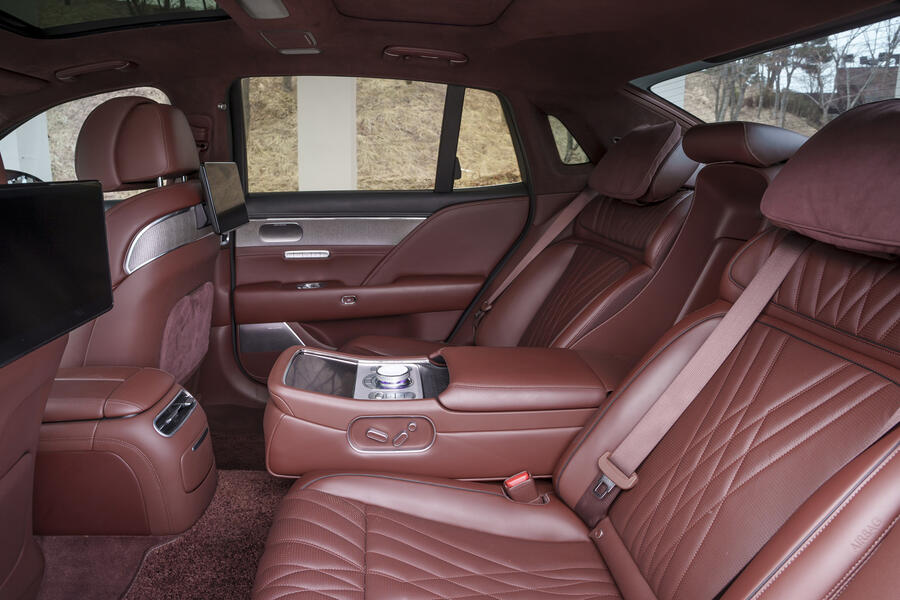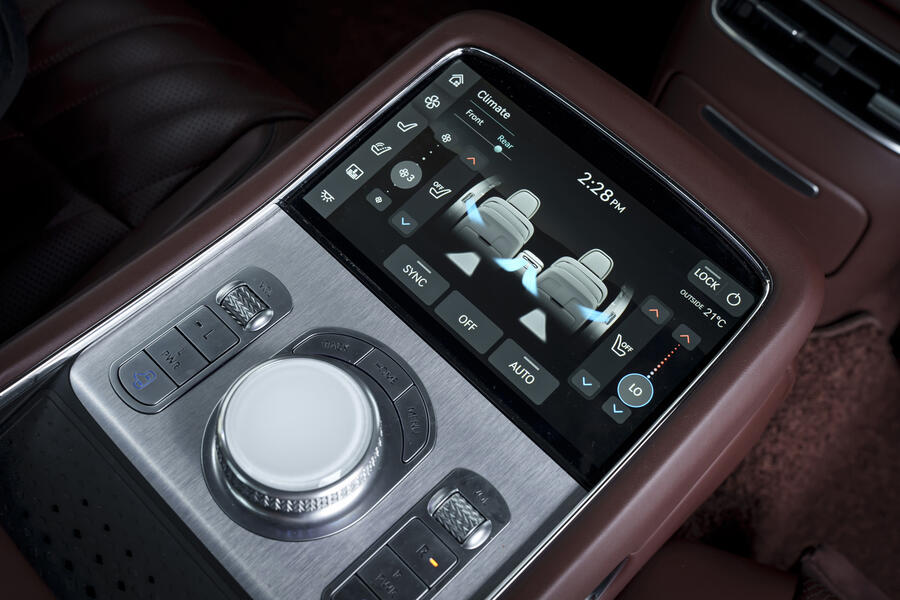The original Genesis G90 (or EQ900 in its native South Korea) was the first model to carry the Genesis brand name when it debuted late in 2015.
The saloon came to North America almost a year later as a rival to the established large-luxury big-hitters – the Audi A8, BMW 7 Series and Mercedes-Benz S-Class – but has never been sold in Europe.
Despite the subsequent arrival on European shores of smaller models like the GV60 and G80, the all-new second-generation G90 won’t make it here either, unfortunately.
The new model clothes the established strengths of cosseting luxury and cutting-edge tech in a more attractive exterior package. The front end marries the brand’s familiar two-row LED headlights with a huge ‘crest’ grille. At the rear, there’s a whiff of Bentley in the C-pillars and Mercedes in the tapering rear deck. But overall it’s a cohesive and distinctive design.
The 5.0-litre petrol V8 has been replaced by two versions of a twin-turbocharged 3.5-litre petrol V6. The higher-powered version, tested here, is further boosted by an electric supercharger, its 48V battery pack taking the place of the spare wheel under the boot floor. Maximum power is 409bhp, up from 375bhp for the base engine, but the real benefit of e-supercharging is that peak torque is available from a lowly 1300rpm.
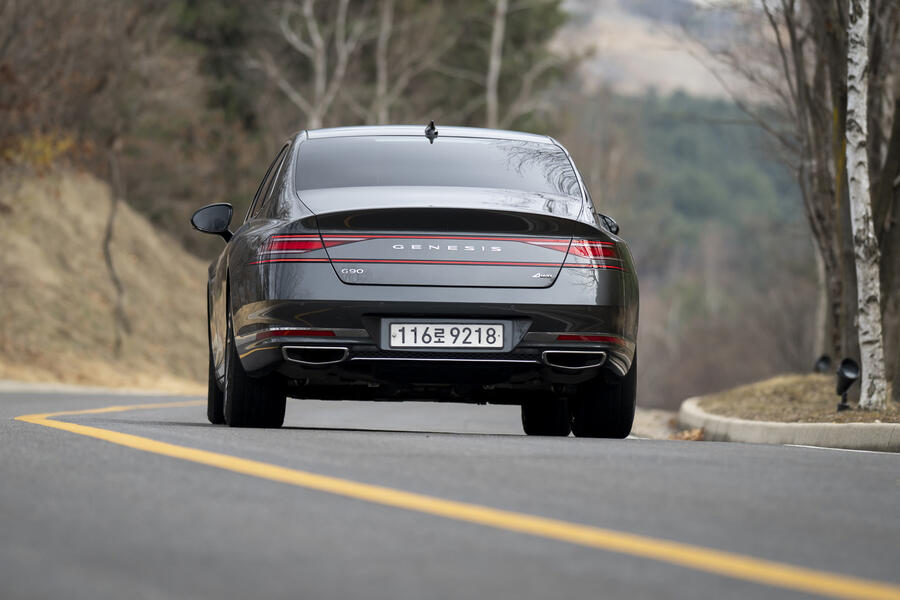

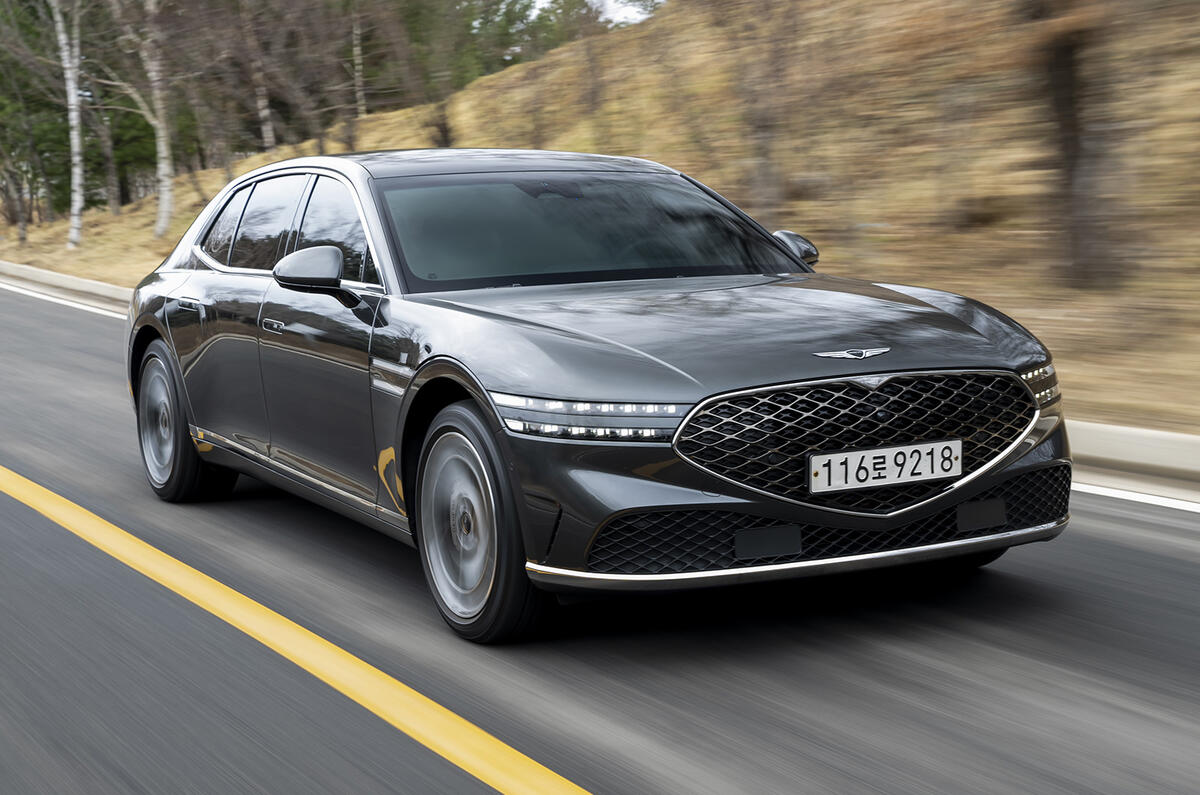
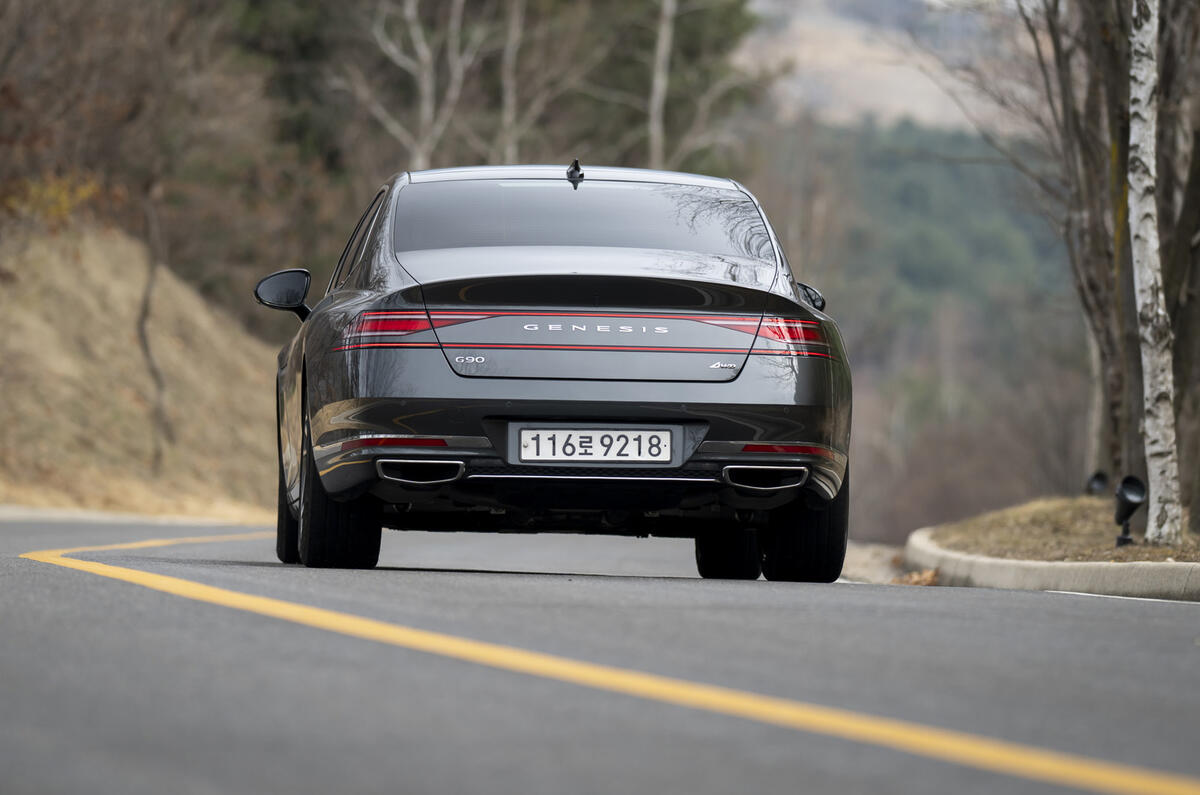
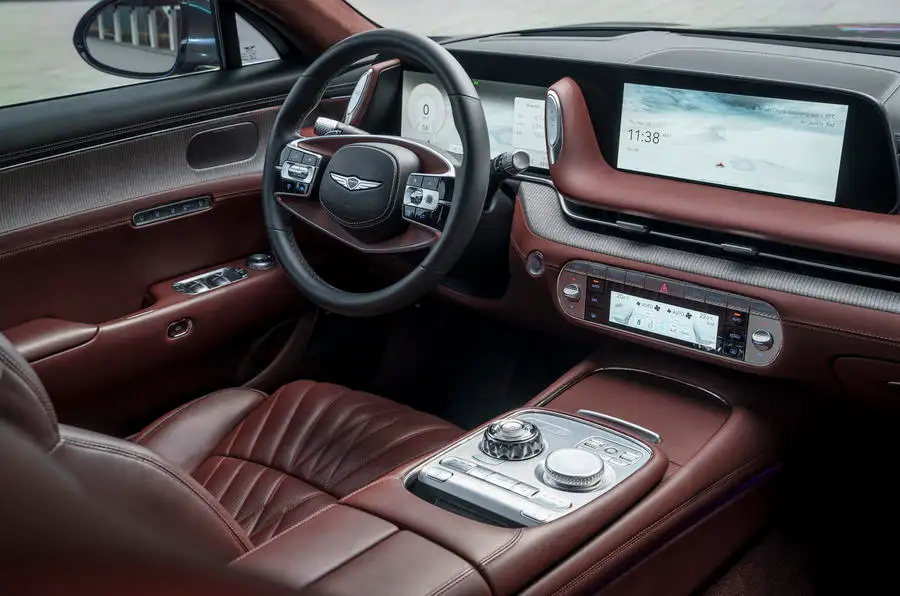
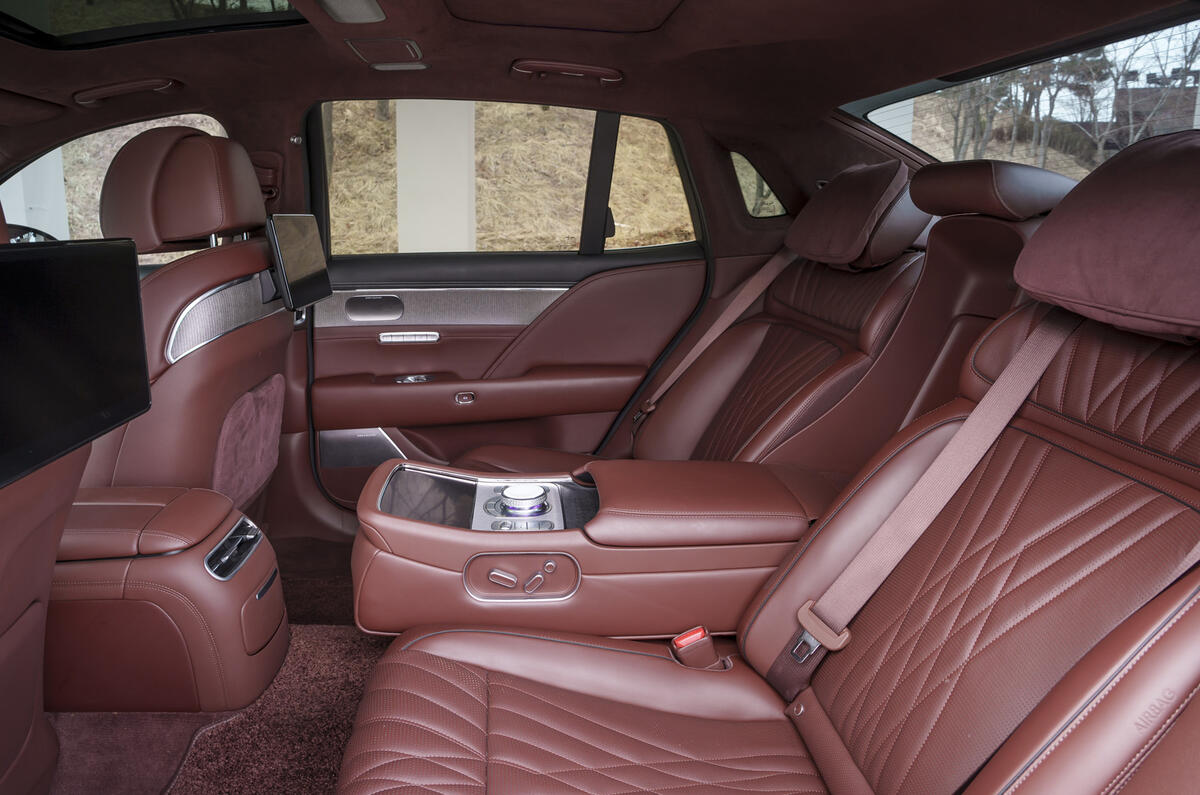
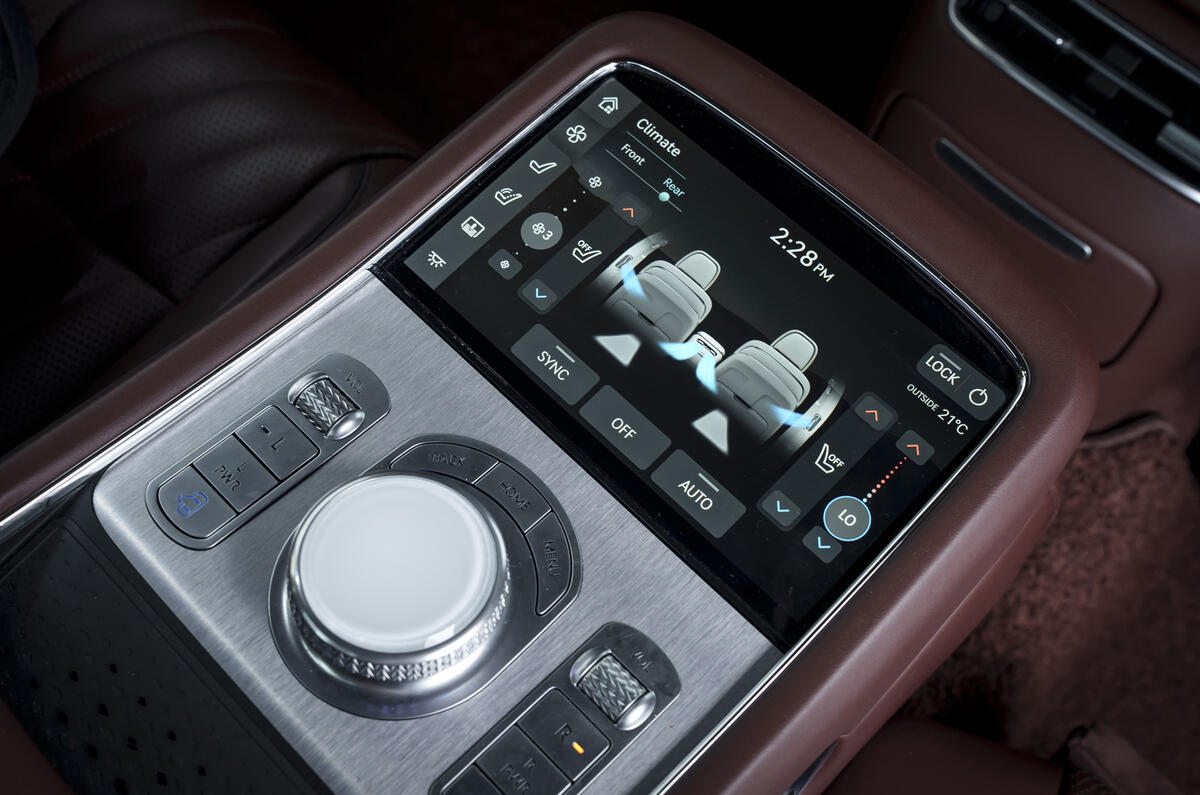
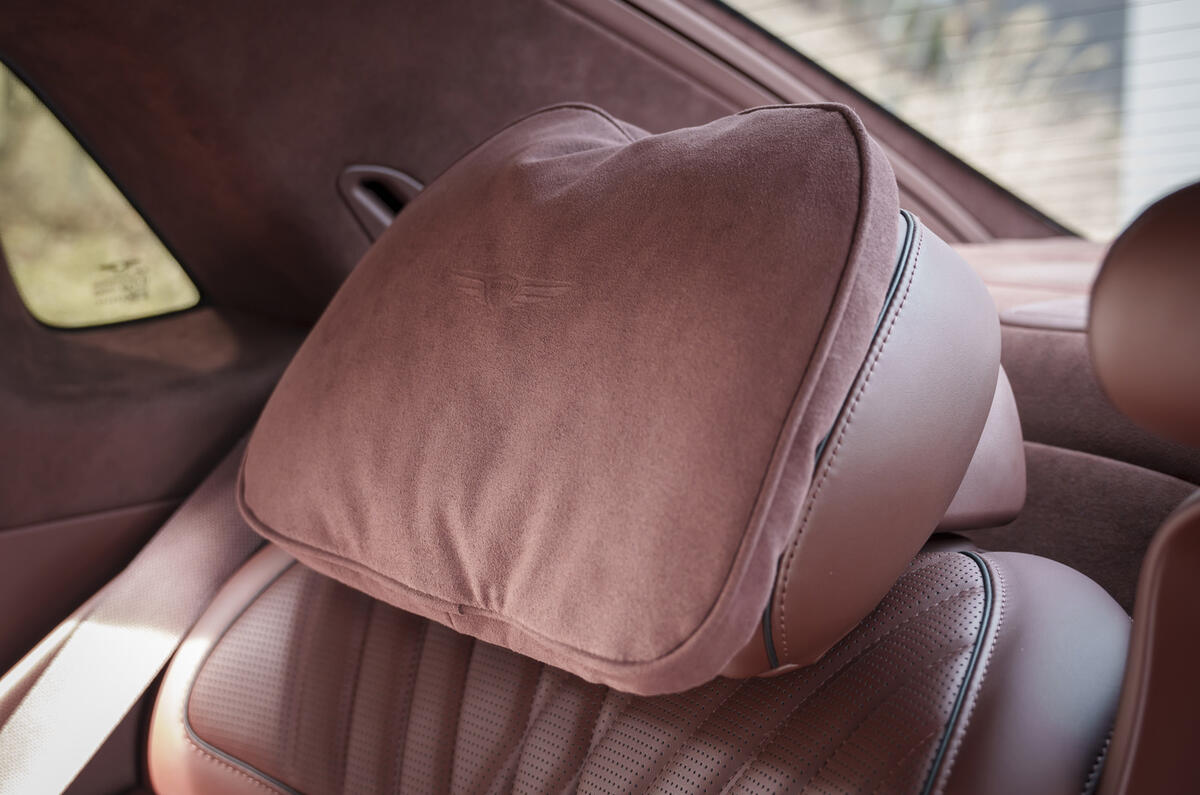
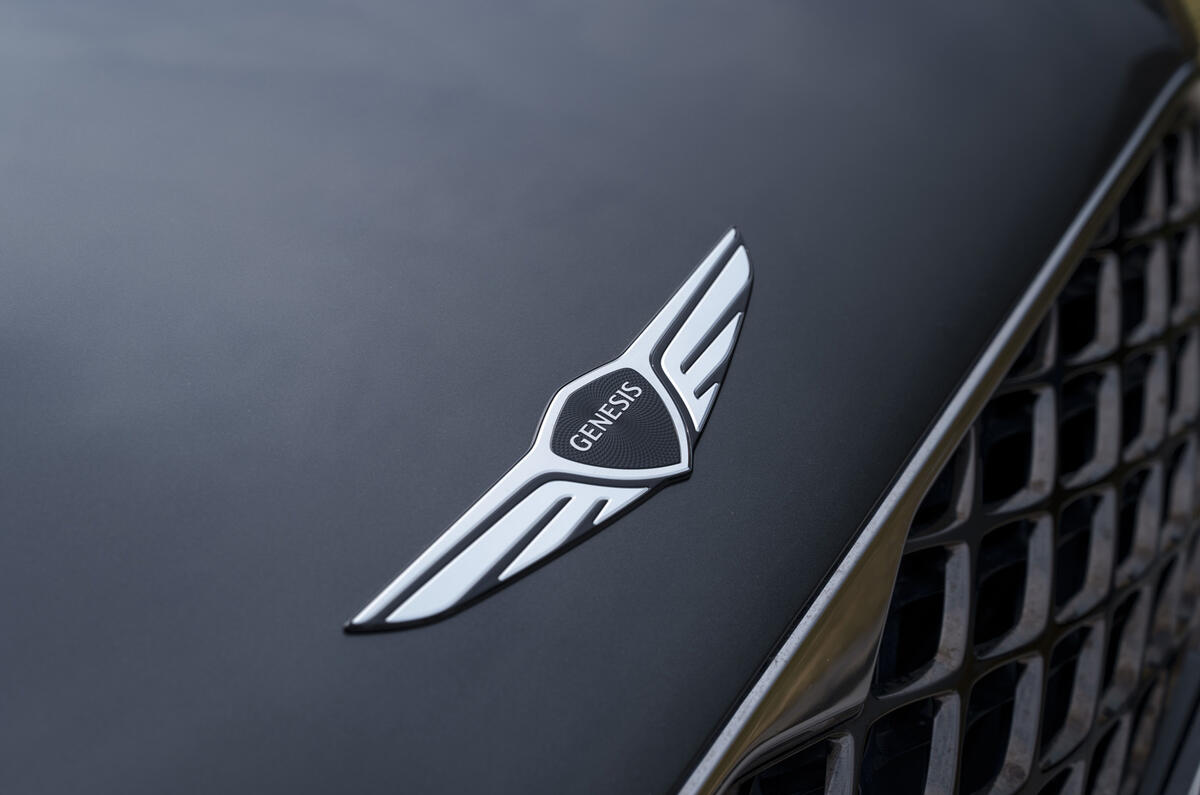
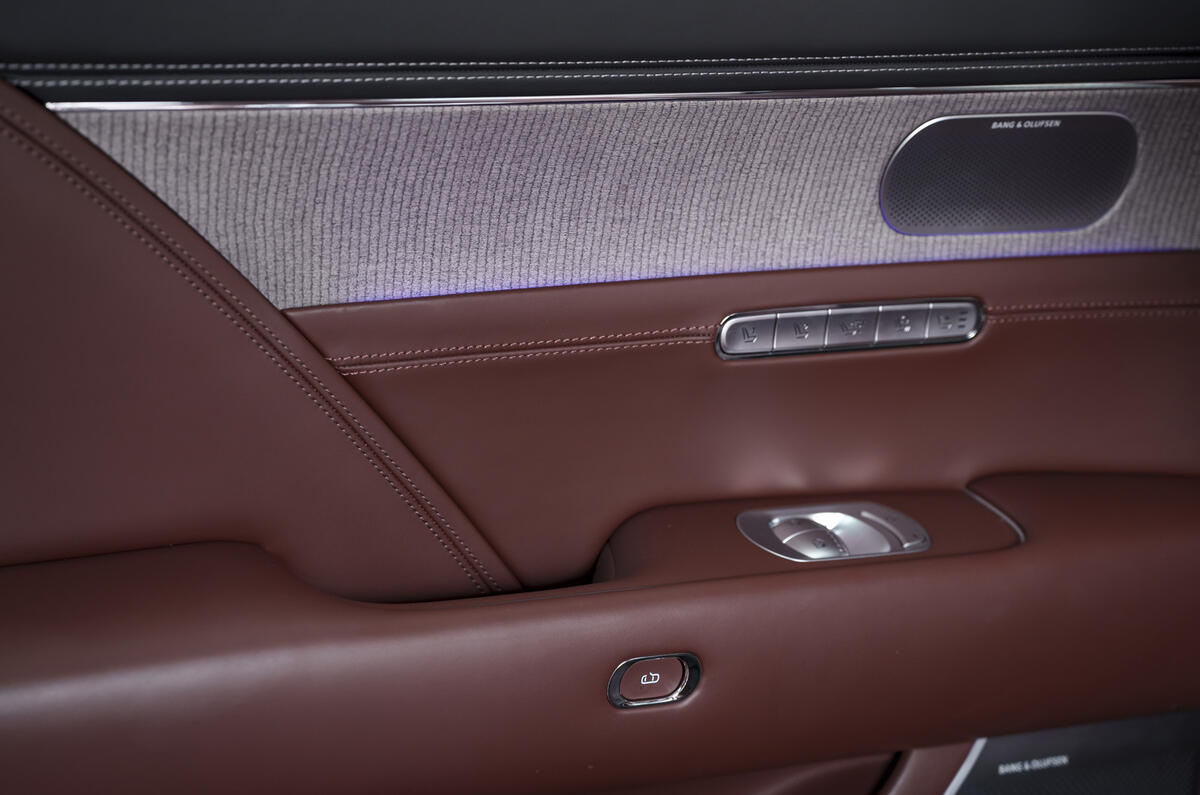
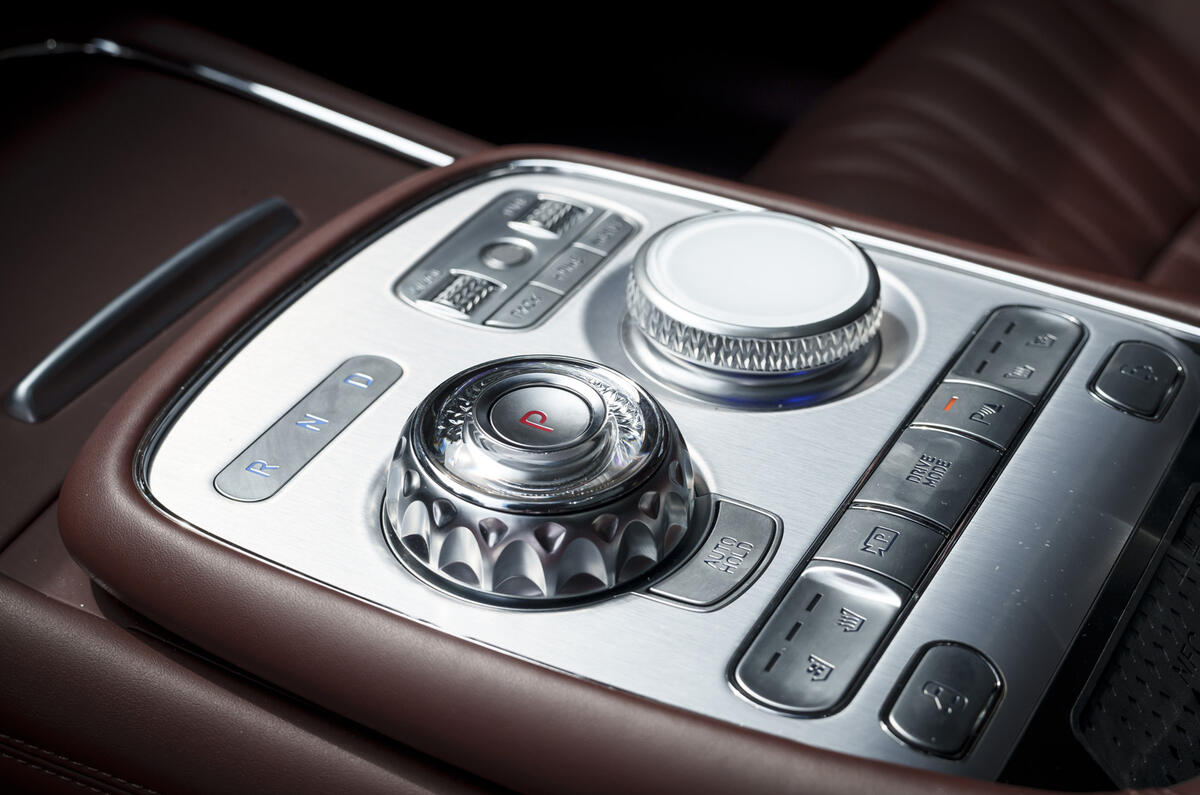
![Genesis G90 engine] Genesis G90 engine]](https://www.autocar.co.uk/sites/autocar.co.uk/files/styles/gallery_slide/public/genesis_g90_engine.jpg?itok=A9nXUAmj)
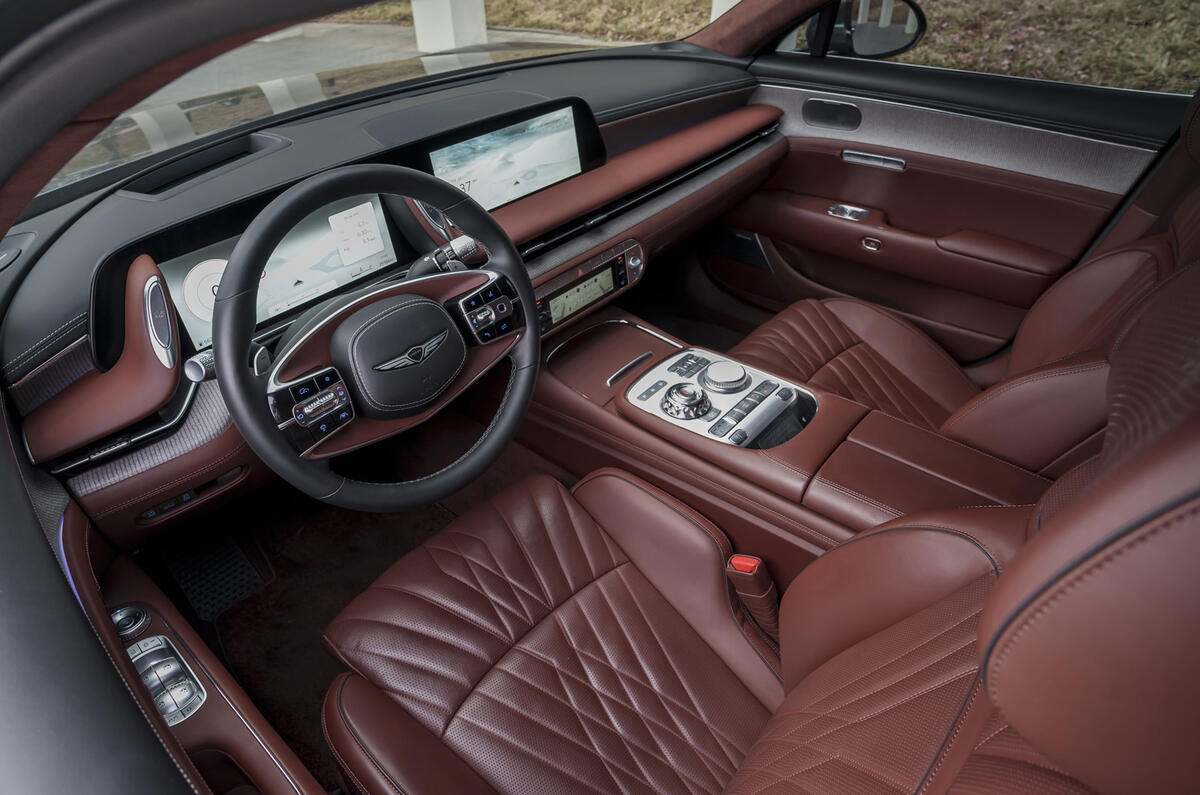
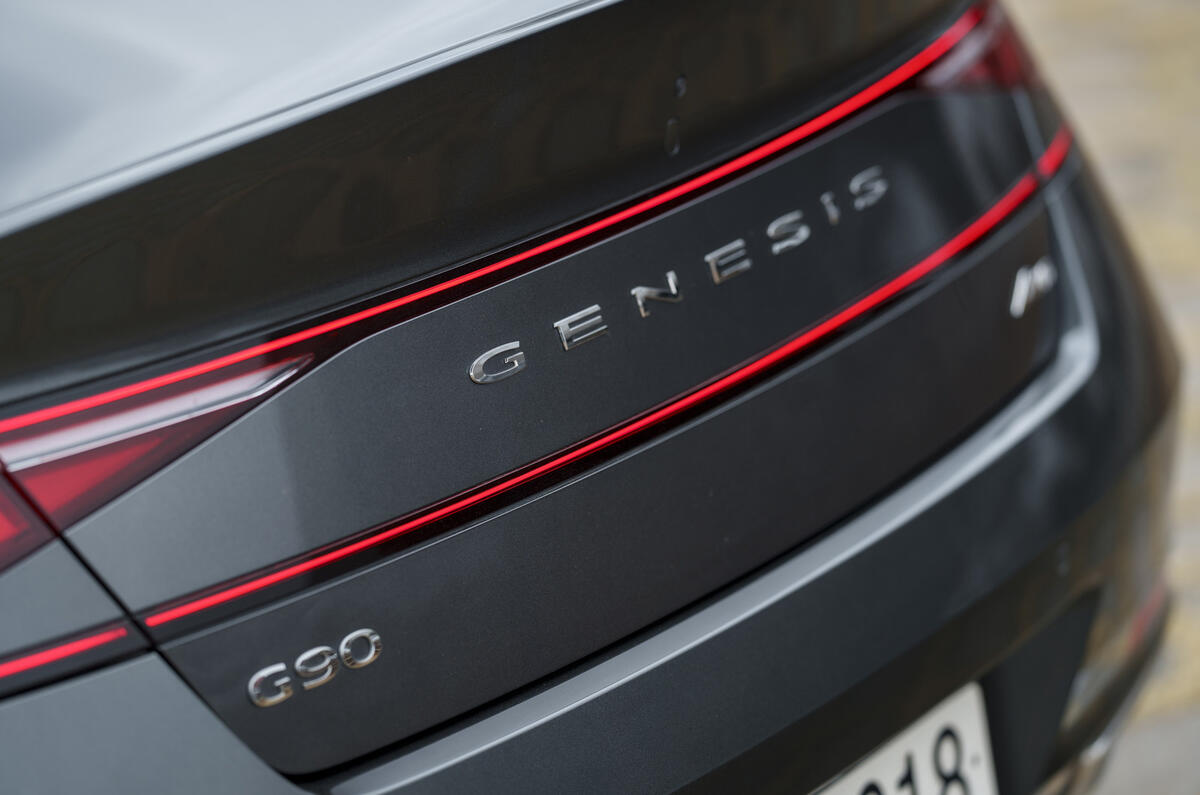
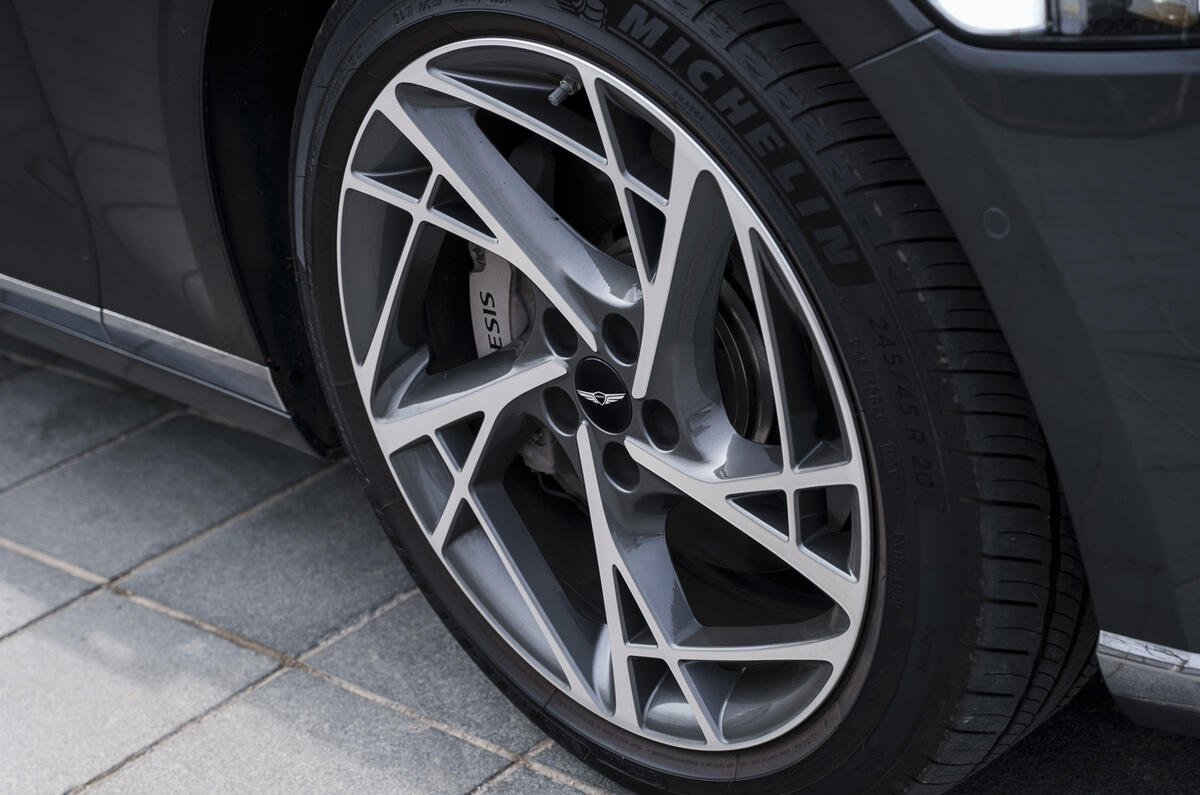
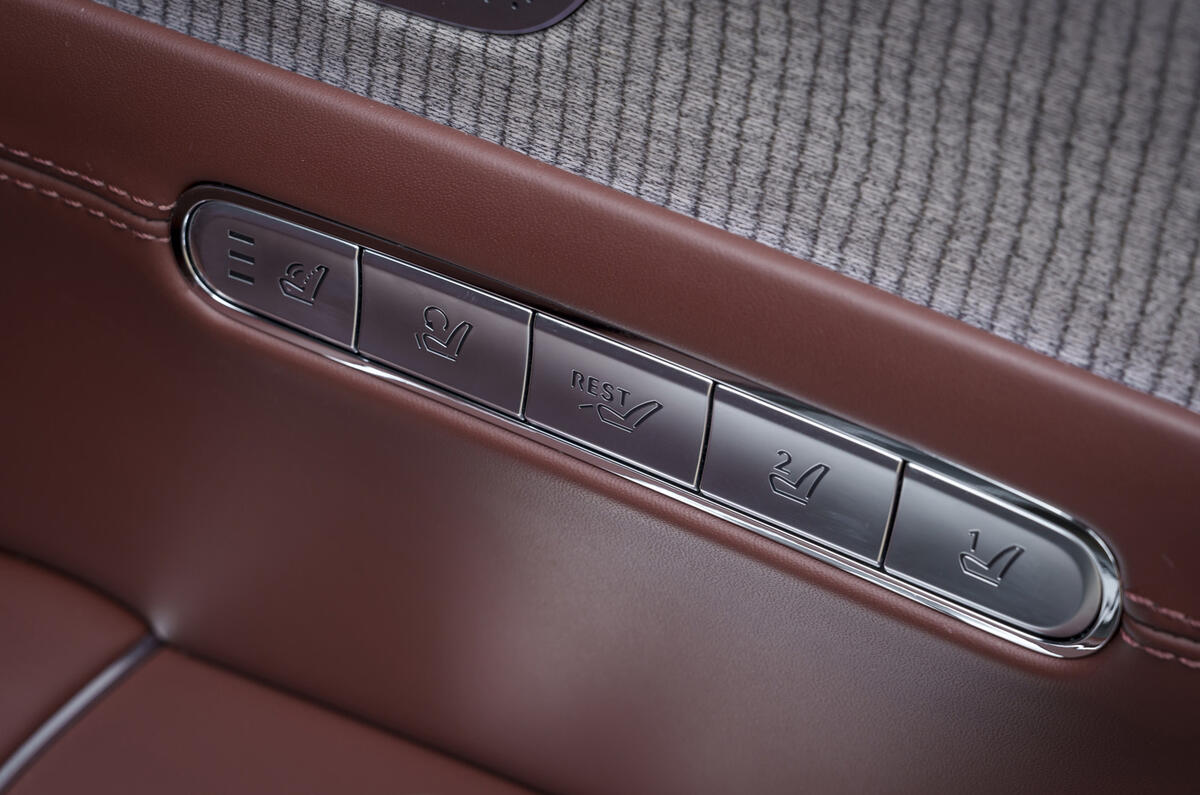
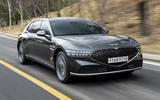

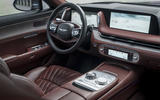
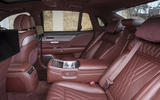
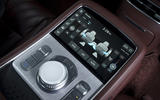

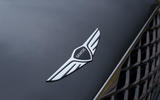
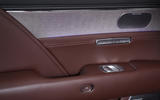
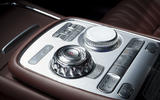
![Genesis G90 engine] Genesis G90 engine]](https://www.autocar.co.uk/sites/autocar.co.uk/files/styles/flexslider_thumbnail/public/genesis_g90_engine.jpg?itok=nBLW2Nng)
